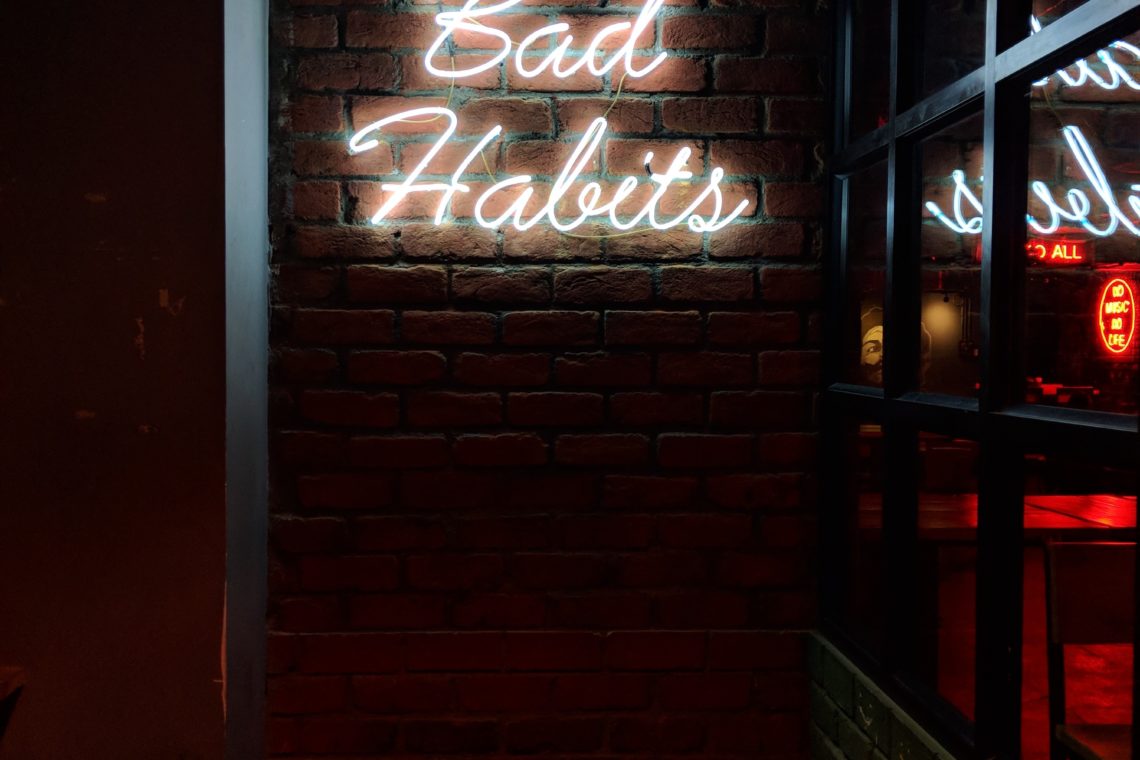Marketers love new parents. When we become parents our needs change. Our wants change. The same with new graduates, new jobs, marriage, moving to a new place. At times of tumult and change in our lives we are open to new ideas, to developing new habits- good and bad.
When I was in college I had a TV that had an alarm. I would set it to come on to an exercise show on the sports channel. In the morning I would literally slide out of bed and do the thirty minute workout. Not the first time. The first time I slid out of bed and fell asleep on the floor. By the end of the week I was actually doing the workout. By the end of the month I was doing the workout with enthusiasm. After a while I started getting up half an hour earlier to do both the original show and the one before it.
Eventually I was swimming, doing weights, and taking an aerobics class. I even stopped drinking soft drinks. Then I graduated, moved cities, moved in with my boyfriend, got a job, and all my good habits were replaced with a forty, fifty, sixty hour work week and a mass of bills. Unfortunately, for most of us, the chaos of change enforced from the outside too often means shedding good habits and replacing them with bad ones.
My keynote habit, setting my TV to wake me up with a workout, was put aside. There were several reasons for this. I didn’t want to wake my partner in the morning. My mornings in general were much busier. The shows I’d worked out to came on too late for me to do them before work. All the change triggered my anxiety. My new keynote habits became existing on takeout food and going out to happy hours to drink off the stress with coworkers. Even the long hours were a bad habit. When I left Texas and that life I brought those bad habits with me because bad habits are much stickier than good ones.
All of our habits are in our lives for a reason. Both the good and bad habits give us something, make us feel something we want to feel. Most bad habits have one or both of two triggers: stress or boredom. When we are stressed or bored we seek things that make us feel better. Things that are easy or basic, often the two together: food, sex/porn, booze, television, social media. Habits that bring immediate gratification. These pleasure-based habits are the hardest to break thanks to the fact that the brain releases dopamine, the pleasure hormone, when we indulge. This is especially true of those as a result of stress.
So now, not only do we have these neural pathways etched into our brains they are being reinforced with jolts of pleasure. This is one reason why we when decide to quit a bad habit we are so unsuccessful. Willpower, self-control, is a finite resource and many of our bad habits are a constant temptation. If we smoke we are hyper aware of the smokers around us. If we are trying to stop biting our nails we are constantly aware of our hands. This is true of trying to quit most things. Especially habits related to food. At every job I had in the US food was everywhere.
![]()
Because bad habits provide some form of value to us, it can be downright painful to attempt to eradicate them from our lives. We come to think we deserve, or worse need, the habit. There really is nothing more relaxing than a large glass, or two, of wine after work. Coming home to a generous slice of double chocolate chip cookie dough cheesecake after our boss jumps all over us makes the indulgence feel like a reward for our endurance.
The problem is we also recognize the habit as “bad”. We beat ourselves up, mentally. This negative emotion causes us to think about everything we’re not doing, or feel like we’re doing wrong. This kind of downward spiral rarely works in motivating us to make long lasting changes. In fact, it may trigger us to return to the comfort of our old habits and that pleasure shot of dopamine.
The truth is instant gratification is often an illusion. That perceived benefit that we get is filling some kind of hole we have. Before we can shed our bad habit we need to figure out what need it is feeding. Otherwise we’ll replace it with another bad habit. We need to identify the emotion behind the desire for this thing we are doing to, not for, ourselves. Before succumbing to our habit we need to take a few breaths and tune into what we are truly feeling.

Too often we replace happy hour at the bar with happy hour at Baskin-Robbins because we haven’t dealt with the things that made us pick up our bad habits in the first place. Understanding the why of our habits is important. In the case of boredom or stress, often simply feeling our feelings will dramatically diminish our desire. Knowing that we smoke when we get stressed allows us to come up with a different way to deal with stress. Getting to the reason behind the habit is especially critical when the underlying issues are something deeper. If we are essentially self-medicating our depression, our anxiety, our PTSD, then we need to address this first.
The research of Professor Sheeran at the University of North Carolina Chapel Hill shows that people successfully translate intentions into action only about 50 percent of the time. The good news is breaking bad habits is easier if we use the opportunity as a chance to swap them for healthy ones. Knowing that we smoke when we get stressed allows us to come up with both a different way to deal with stress and the opportunity to develop a new, positive, behavior instead of having that cigarette. Whenever we replace a bad habit with a healthy one, our bodies reward us. We feel more energetic and just better, both physically and emotionally. The key is exchanging the bad habit with a better habit that delivers a comparable benefit.
What might that be? I don’t know. There is no one-size fits all formula that everyone can apply. Depends on the habit and what we are getting from it. Different people with different habits equals different ways to break them. It may take a lot of experimentation before we discover what works for us. If it’s boredom we’re trying to avoid start choosing things that are healthy escapes. For stress, think active. For deeper issues, seek a therapist. I know I am.
